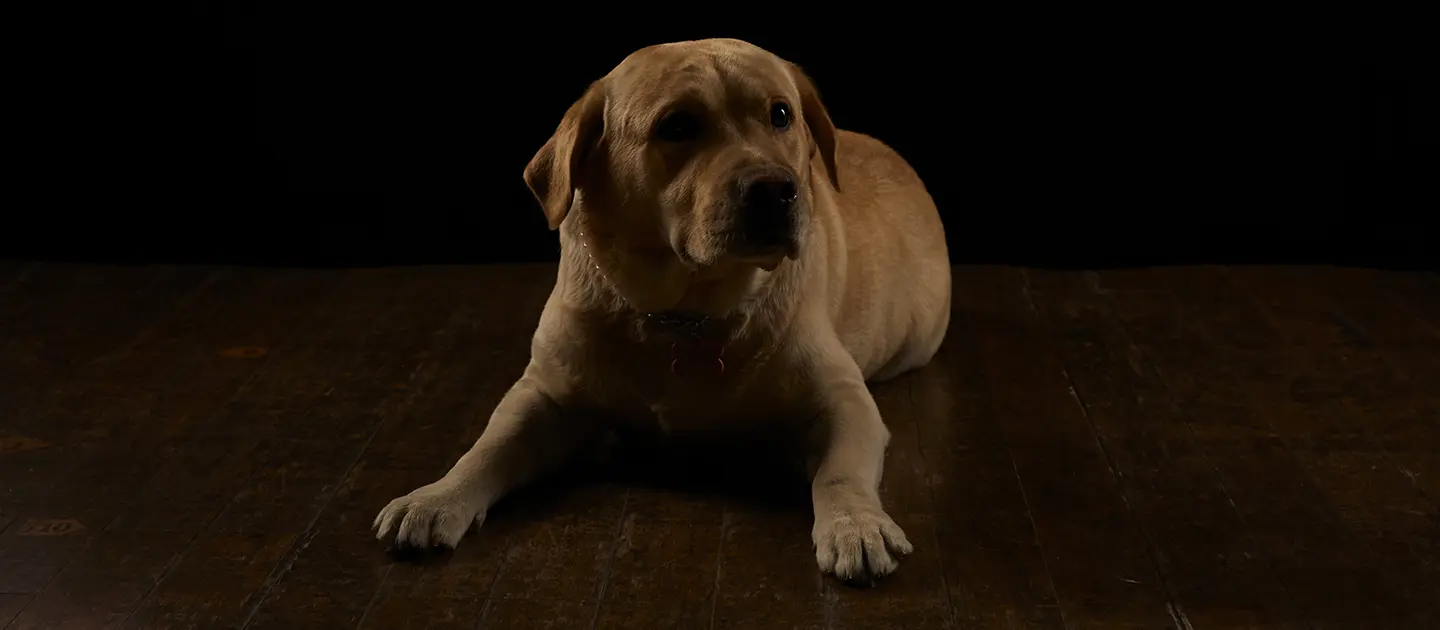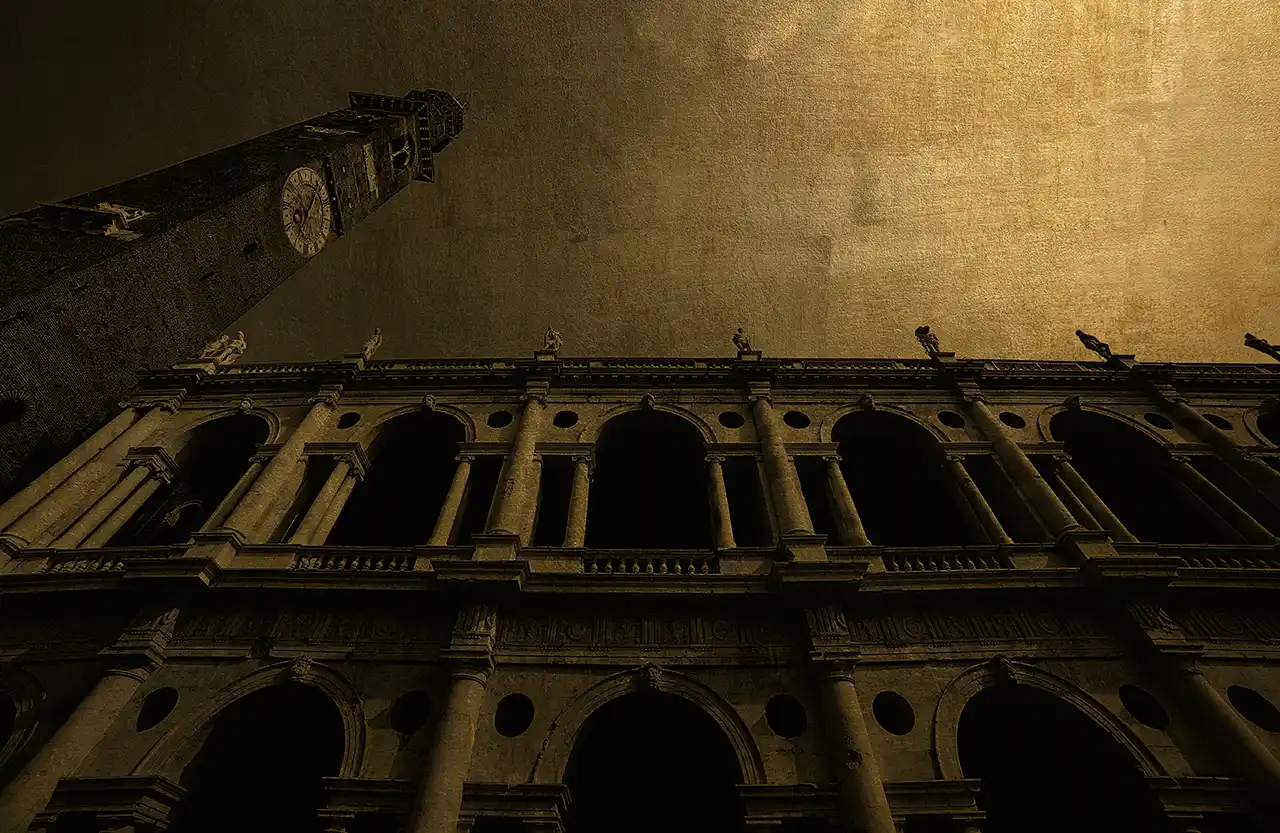Matteo Grandi
cook
Matteo, when and where did you meet Elena?
At aperitif time in a friend’s bar. I was chatting with him – we were certainly talking about food – when a young woman pleasantly inserted herself into the conversation. I was immediately struck by her alert eyes, her interest in the topic, and – little by little, speaking – her positivity. The kind but direct way of asking. That day, I had already sensed two things about her: her underlying sweetness, and her… hard head (laughs)! And here we are. She talking about me. Me talking about her. Both illustrating the “Garibaldi project” which in these difficult years has seen us engaged (it is appropriate to say so) here in Vicenza, in one of the most beautiful squares in the world.

What were the key points of your training?
Rather than points, I would talk about people, given that it is always the quality of relationships and human exchange that makes the difference. I began to discover the fantastic world – precisely in the sense of ‘fairy tale’ – of cooking very early on. It was my grandmother who led me by the hand, step by step, among perfumes, textures, colors that I could no longer – wanted to! – abandon. Of course, later another person who was decisive for me was Jean-Claude Fugier, long-time right-hand man of Alain Ducasse and also of Paul Bocuse: with him I came of age, professionally, I became aware of the precise form my culinary expression would have taken on.
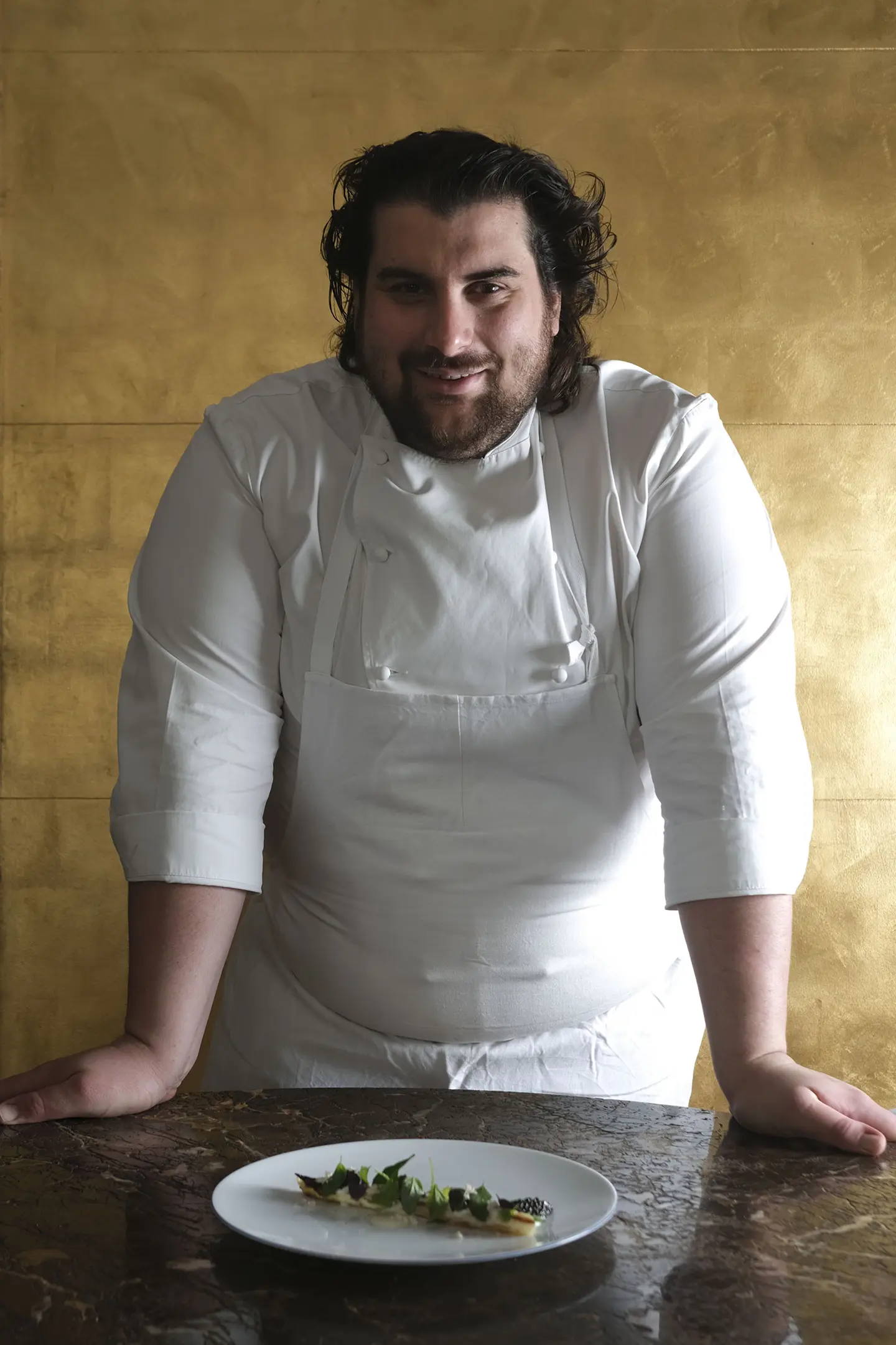
And the turning points in your professional life?
I would name three. The victory of the 2014 edition of the reality cooking show ‘Hell’s Kitchen Italia’, which gave me visibility that would otherwise be difficult to obtain. The work of many years conducted alongside a master like Jean-Claude Fugier, in Asia, who offered me the opportunity to learn a method and understand what Asian and French cuisine is, as well as clarifying the concept of excellence . The third turning point was to turn on the lights in our rooms, Elena and I, putting our ideas on stage every day. Which don’t just concern the kitchen: we like to personally take care of the study of every detail, from the marble tables to the plates and glasses – then entrusting the creation to talented and trusted professional artists.
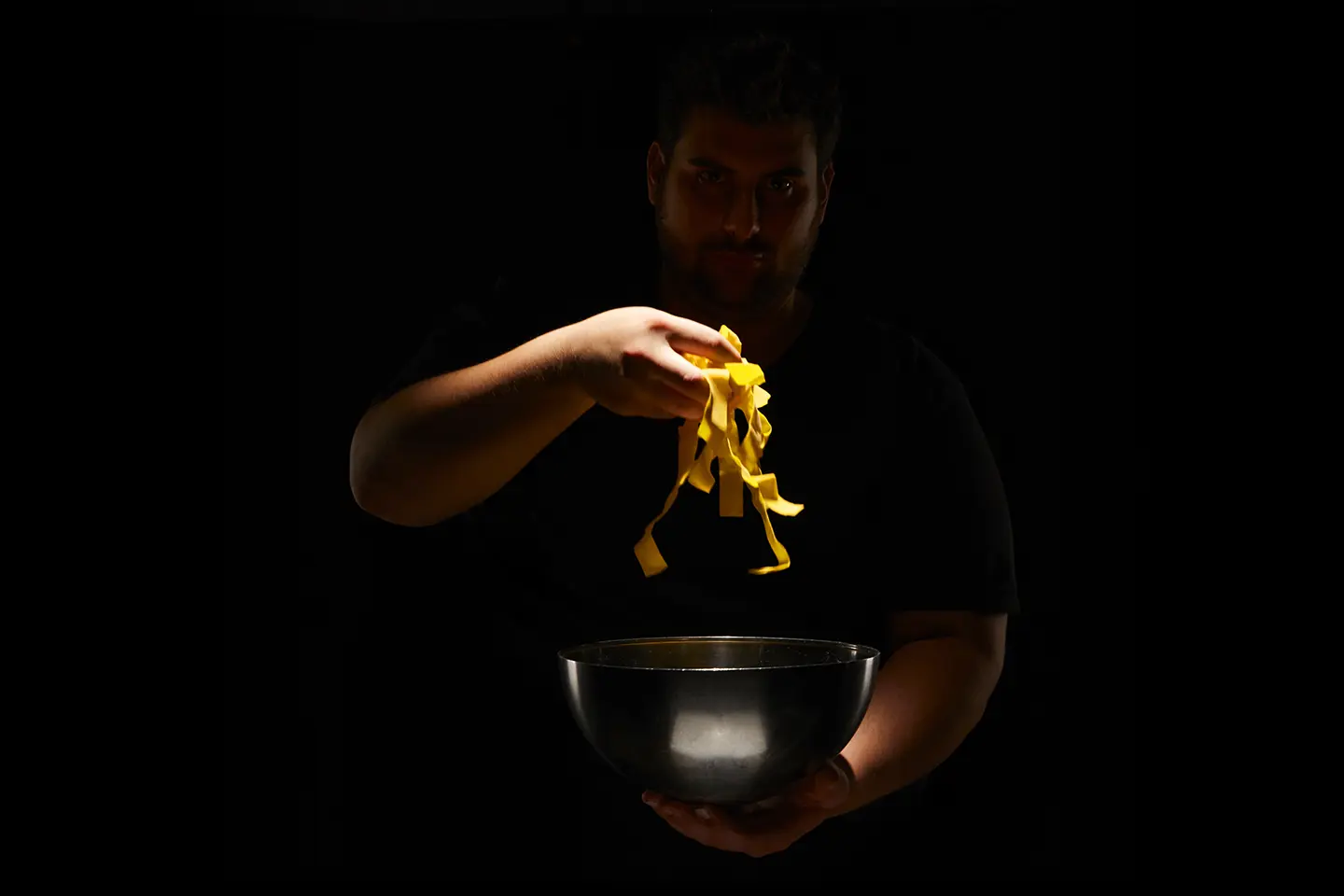
And then there is the other people’s table.
Certain. For Elena and me, eating and drinking is a hobby as well as something related to the profession. We really have fun, we relax in going together where food and wine call us. I love Anne-Sophie Pic’s style, her use of citrus fruits, her elegance and lightness in the kitchen. I am closely and closely concerned with the oriental touch that Takao Takano can give to classic French dishes. Then, a dinner with Victor Arguinzoniz-Asador Extebarri is unmissable, for the essentiality of what he proposes, the unique ability to manage wood and embers, modulate temperatures, he is a master of fire.
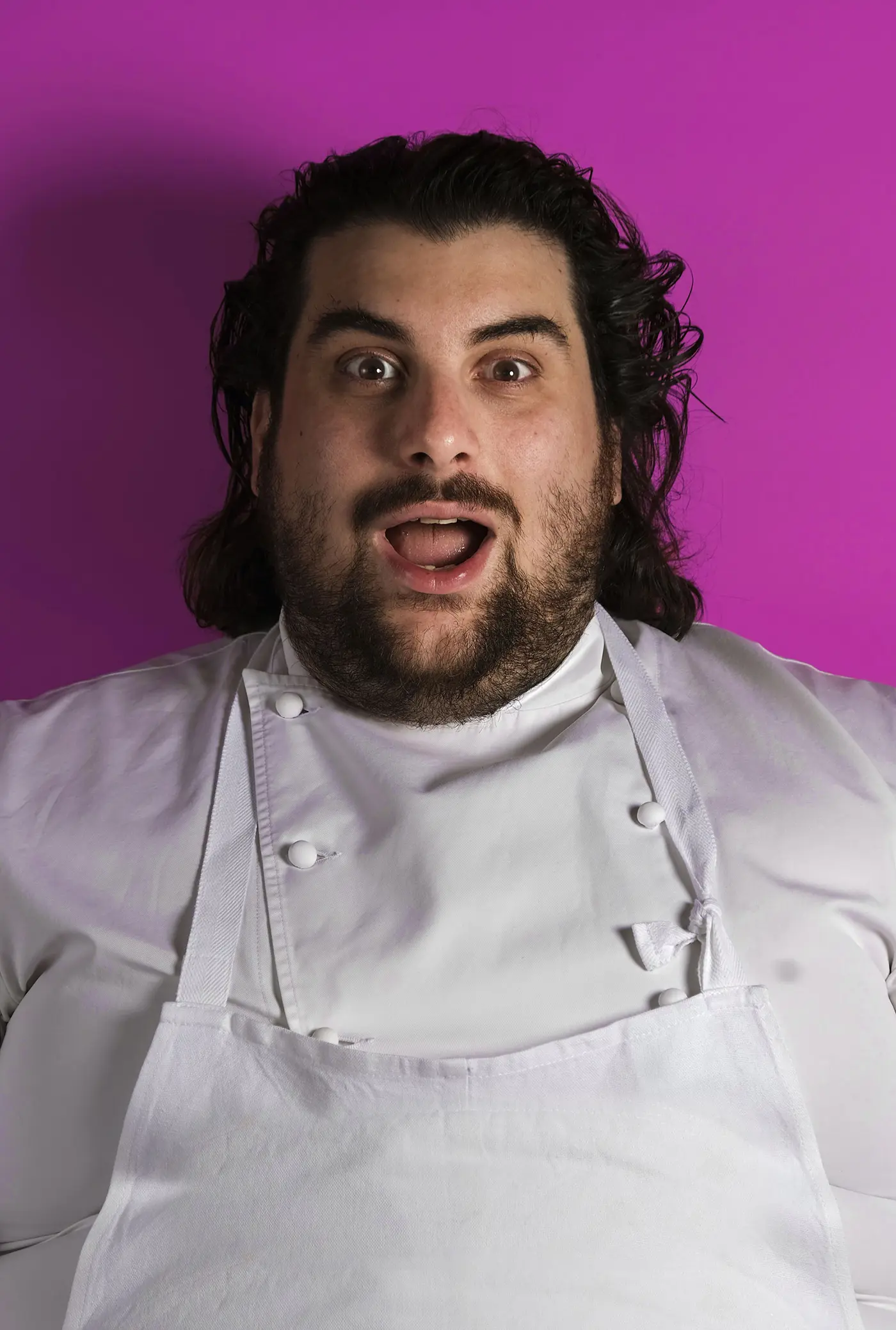
What does your typical day at work look like?
I contact suppliers who come from outside. I check the incoming raw material. I visit local suppliers. Then, I work in the kitchen. It is up to me to transform what enters the restaurant into a series of dishes: but first, and above all, it is up to me to verify what enters. Otherwise it would be pointless to start cooking something that isn’t perfectly suited to what I have in mind, in terms of quality.
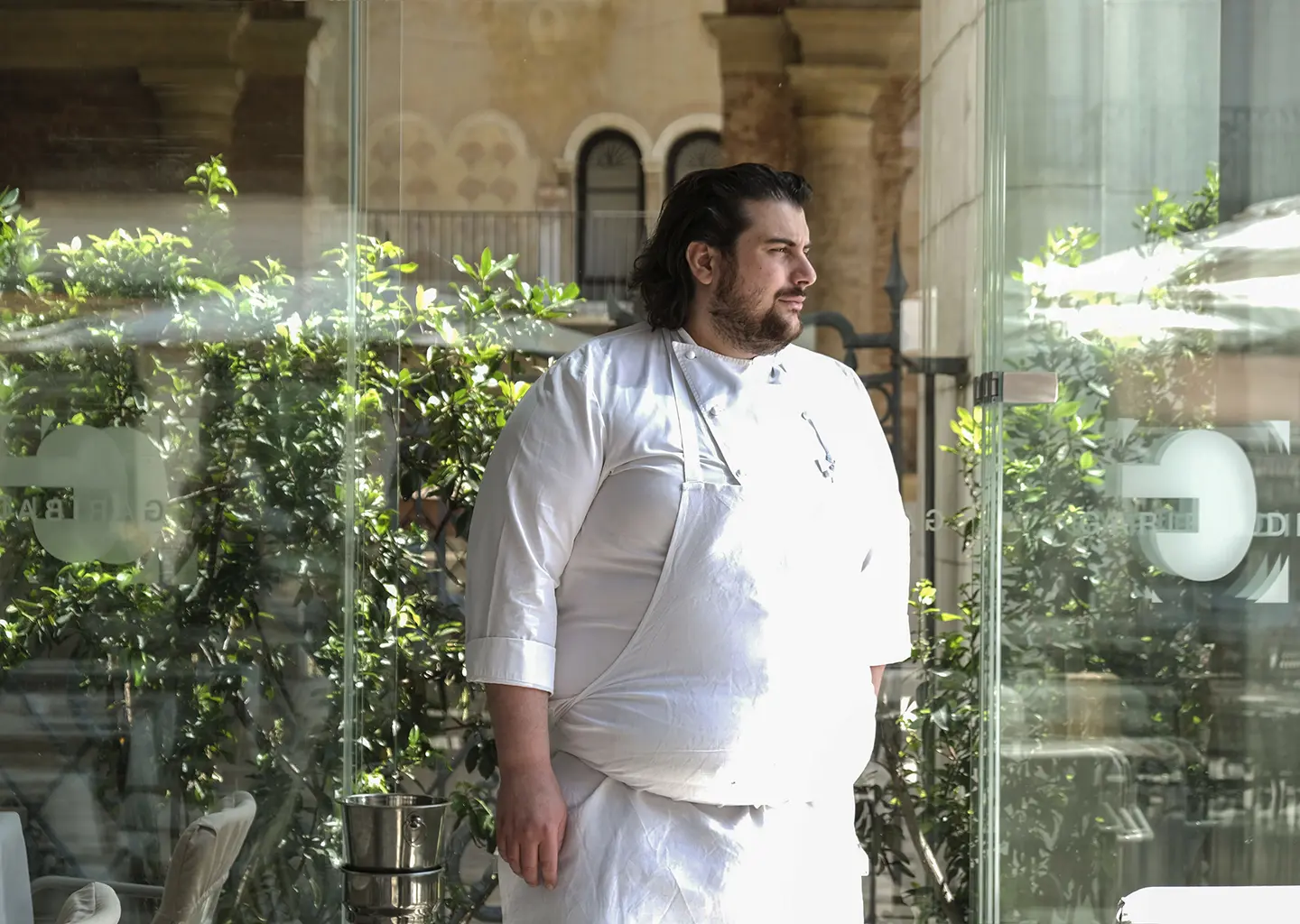
How would you define your cuisine?
Instinctive. In my opinion, everything that is inherent to creation is compared with intuition. Otherwise it would be enough to simply copy – verbatim – the already existing recipes. I have a complex approach, even finding myself at the crossroads of different cuisines – Asian, French -, but in the end I have to ‘feel’ the dish, make it my own. I don’t like exhibitionism at all, on the contrary. In any case, I really like the Asian inspiration. Another feature that I love is lightness, at every level. If the tone with which I create my recipes is light, the dish itself must be equally light.
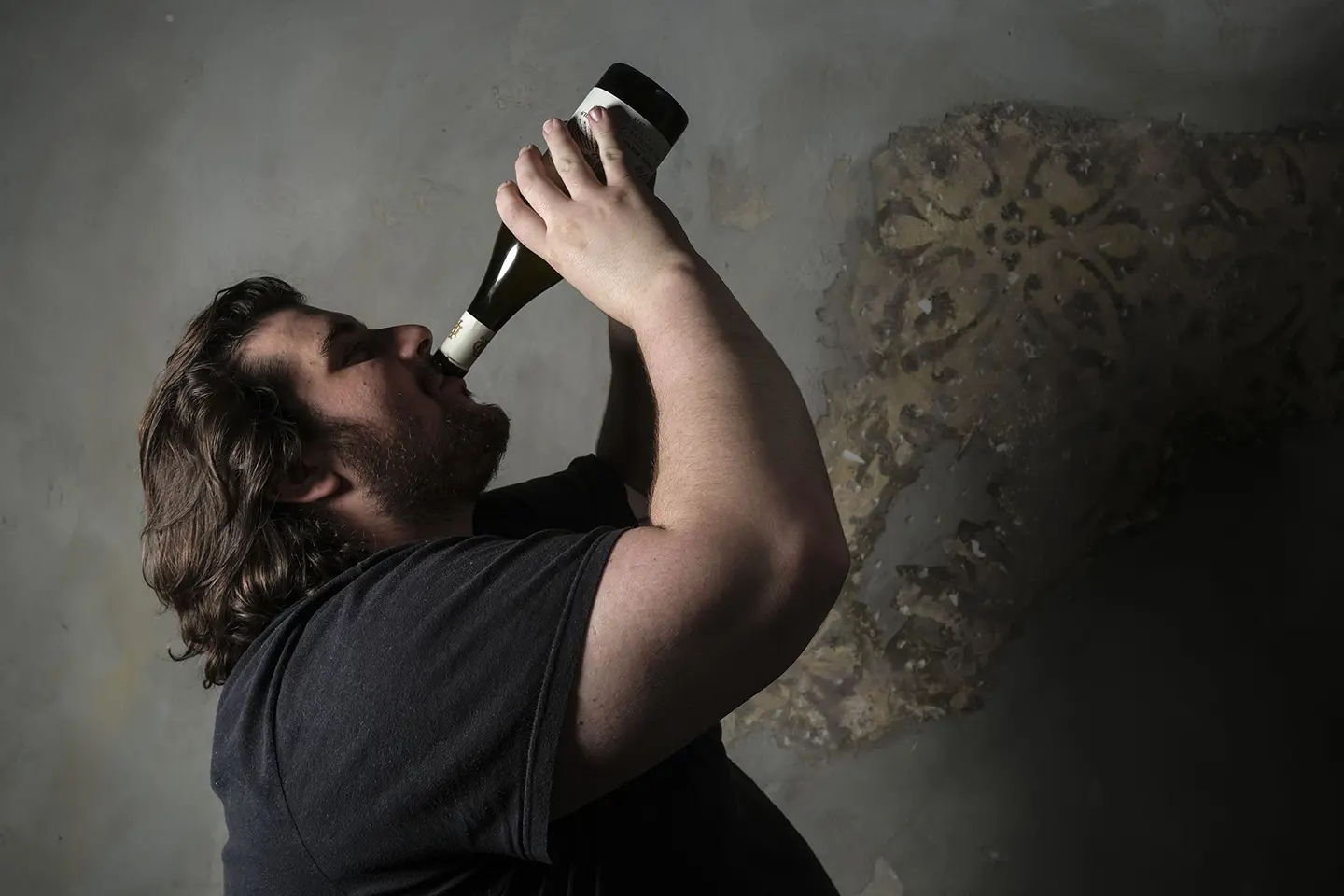
What are your favorite ingredients? The dishes? The wines?
Let’s say that the mood of the day has a great influence on preferences, and therefore also on the dishes I decide to prepare. In fact, Elena complains about the fact that I often have to reprint menus as I go because I decided to make variations based on what I felt… However, every ingredient interests me. I have a predilection for fresh, daily and seasonal products. The wines themselves must, for me, be natural: this research has given surprising results over time, with Elena we have managed to discover local producers of the highest level.
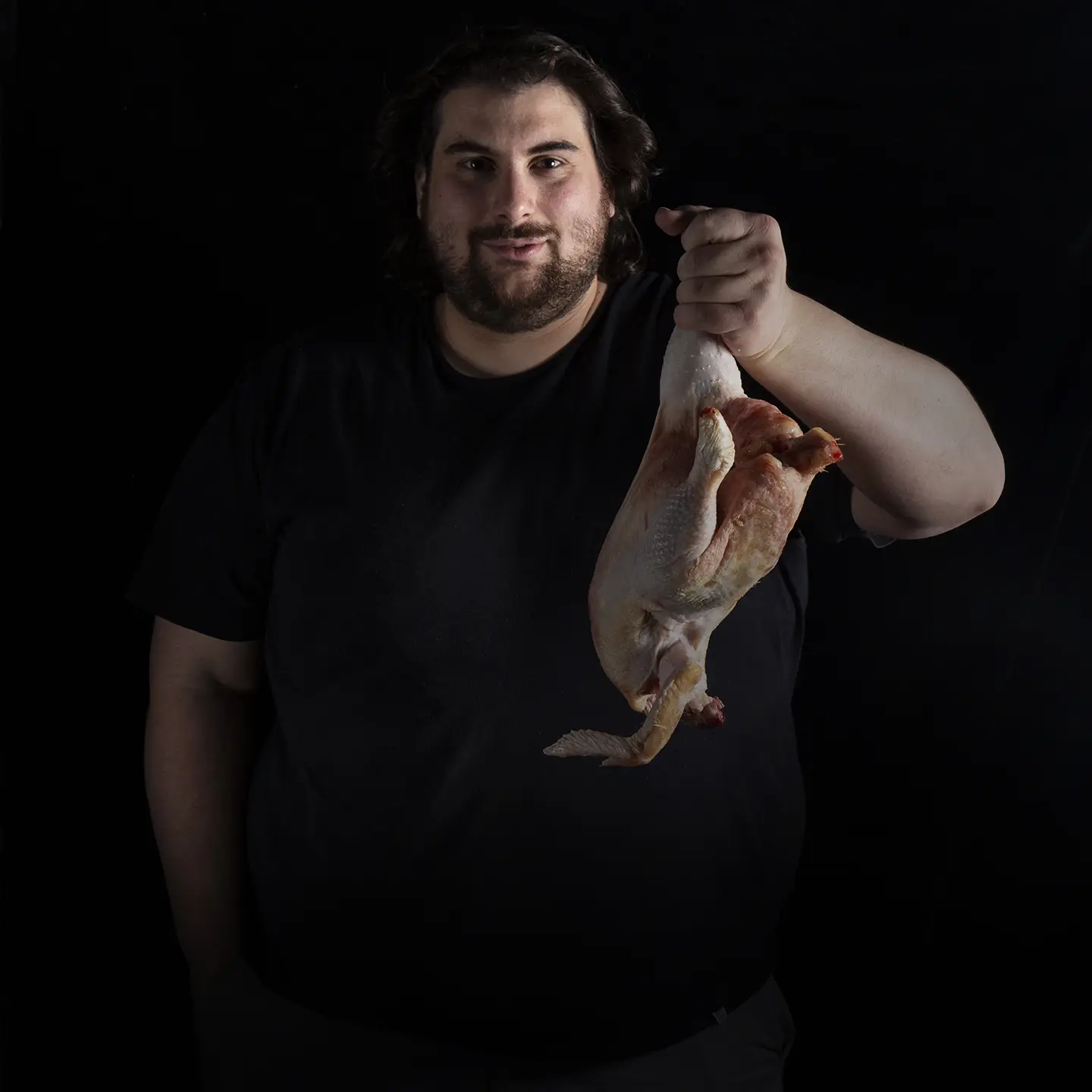
How would you define your restaurant today? And how would you like it to be?
It is in transit today. Evolution, change, are everything to me. I don’t like standing still at all, and then I want the guest to find something new every time. At least that’s what I would expect when visiting a place. I like to convey the sense of research, of something that moves. How would I like it to be? A food and wine playground! Before I talked about research: but this doesn’t necessarily have to be serious, in fact the playful aspect is the best part of a chef. Elena and I consider ourselves very lucky, because our work necessarily involves having fun.
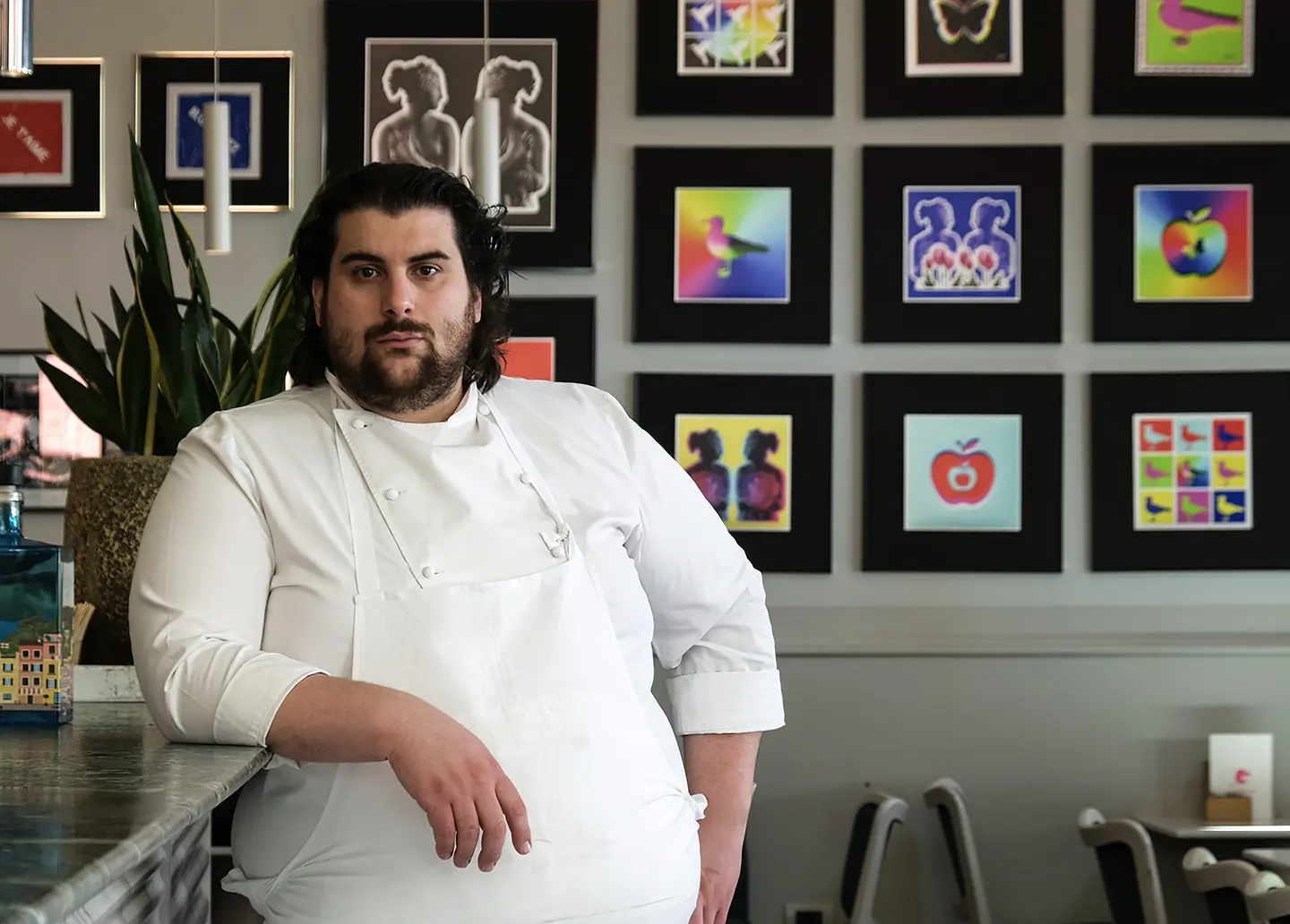
Every now and then, you will rest…
I don’t see this clear cut continuity. When you love what you do, the need for rest is relative. We don’t really switch off even when we’re on vacation. We like discovering dishes we don’t know, talking to chefs. In particular, I really like seeing the markets, the fruit and vegetables, the local products. In the world, every market is different – the colours, the voices of the street vendors – this has always fascinated me. If, however, you are referring to something else, to passions cultivated in your free time, well, I read books – about cooking! – and it relaxes me a lot to look after and cuddle my dogs.
